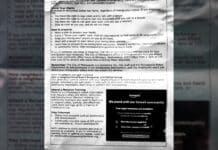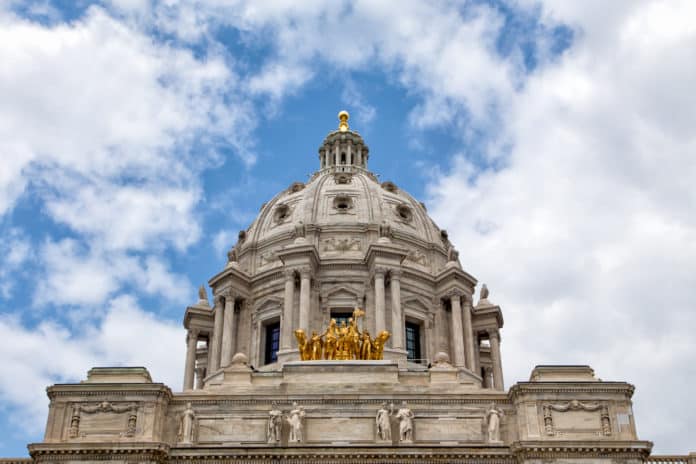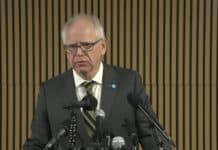The state’s teachers union, a top ally of and donor to Minnesota Democrats, who now control the whole of state government, said it wants a $5 billion chunk of the budget surplus.
Minnesota Management and Budget announced in an economic forecast this week that state lawmakers will have a projected $17.6 billion surplus to work with when crafting a budget for the 2024-2025 biennium next session. That’s up from an estimated $9.2 billion surplus projected in February.
“Minnesotans are being massively overtaxed, and we should spend most of the next session working to give as much of it back to Minnesotans as possible,” House Minority Leader Lisa Demuth said in response to the news.
“Tax hikes of any kind should be a complete non-starter. Families deserve their money back as they continue to deal with the high cost of groceries, home heating bills, and other everyday necessities,” she added.
The surplus is so big that the state could afford to send rebates of $5,800 to every Minnesota taxpayer, according to research from the Center of the American Experiment think tank.
But Education Minnesota has different ideas. Union president Denise Specht, whose political action committee donates huge sums to DFL candidates each cycle, told WCCO Radio she will be asking the Legislature for more than $5 billion to address “chronic underfunding,” increase teacher compensation, and pay for mental health staff.
“The voters rejected the Republican Party’s strategy of obstruction and forced austerity. Now it’s time for Gov. Tim Walz and the leadership in the House and Senate to spend the state’s resources to improve the lives of working Minnesotans,” Specht said in a statement.
She said the state needs to “make up for funding lost to inflation” and “then go farther.”
“It will require a multi-billion-dollar, multi-year commitment from the state,” she said.
At $20 billion, education spending already accounts for 40% of the state’s budget, making it the largest expenditure. Test scores, meanwhile, continue to decline.
Gov. Walz is expected to release his budget proposal in late January, which will be followed by another economic forecast.










